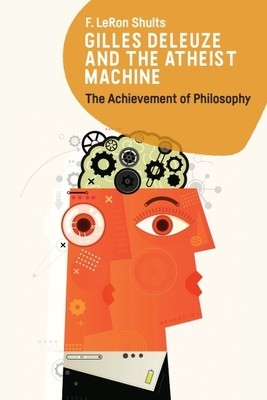
- Išsiųsime per 10–14 d.d.
- Autorius: F Leron Shults
- Leidėjas: Edinburgh University Press
- ISBN-10: 1399529595
- ISBN-13: 9781399529594
- Formatas: 15.6 x 23.4 x 1.4 cm, kieti viršeliai
- Kalba: Anglų
- Extra -15 % nuolaida šiai knygai su kodu: ENG15
Atsiliepimai
Aprašymas
In What is Philosophy?, Deleuze argued that atheism is not a drama but 'the philosopher's serenity and philosophy's achievement.'
LeRon Shults illustrates the uses and effects of an 'atheist machine' throughout Deleuze's work, demonstrating its central role in his philosophical achievements in metaphysics, epistemology and ethics.
Shults also brings Deleuze's philosophy into dialogue with recent advances in computational social simulation, specifically multi-agent artificial intelligence modelling. Framing his argument in the context of empirical findings and theoretical developments in the scientific study of religion, he points toward the potentially creative role of atheist assemblages in addressing societal challenges associated with the Anthropocene.
EXTRA 15 % nuolaida su kodu: ENG15
Akcija baigiasi už 5d.20:13:45
Nuolaidos kodas galioja perkant nuo 10 €. Nuolaidos nesumuojamos.

- Autorius: F Leron Shults
- Leidėjas: Edinburgh University Press
- ISBN-10: 1399529595
- ISBN-13: 9781399529594
- Formatas: 15.6 x 23.4 x 1.4 cm, kieti viršeliai
- Kalba: Anglų
In What is Philosophy?, Deleuze argued that atheism is not a drama but 'the philosopher's serenity and philosophy's achievement.'
LeRon Shults illustrates the uses and effects of an 'atheist machine' throughout Deleuze's work, demonstrating its central role in his philosophical achievements in metaphysics, epistemology and ethics.
Shults also brings Deleuze's philosophy into dialogue with recent advances in computational social simulation, specifically multi-agent artificial intelligence modelling. Framing his argument in the context of empirical findings and theoretical developments in the scientific study of religion, he points toward the potentially creative role of atheist assemblages in addressing societal challenges associated with the Anthropocene.




Atsiliepimai